Steve Osborne on blurring genres with Happy Mondays
Steve Osborne is a producer with more than a few stories to tell. From working with dance-music icon Paul Oakenfold at Perfecto Records and instigating the Madchester sound with Happy Mondays to producing pivotal records for KT Tunstall, Placebo and U2, Osborne has lived and breathed the music industry over the last 40 years and continues to be an active producer today…
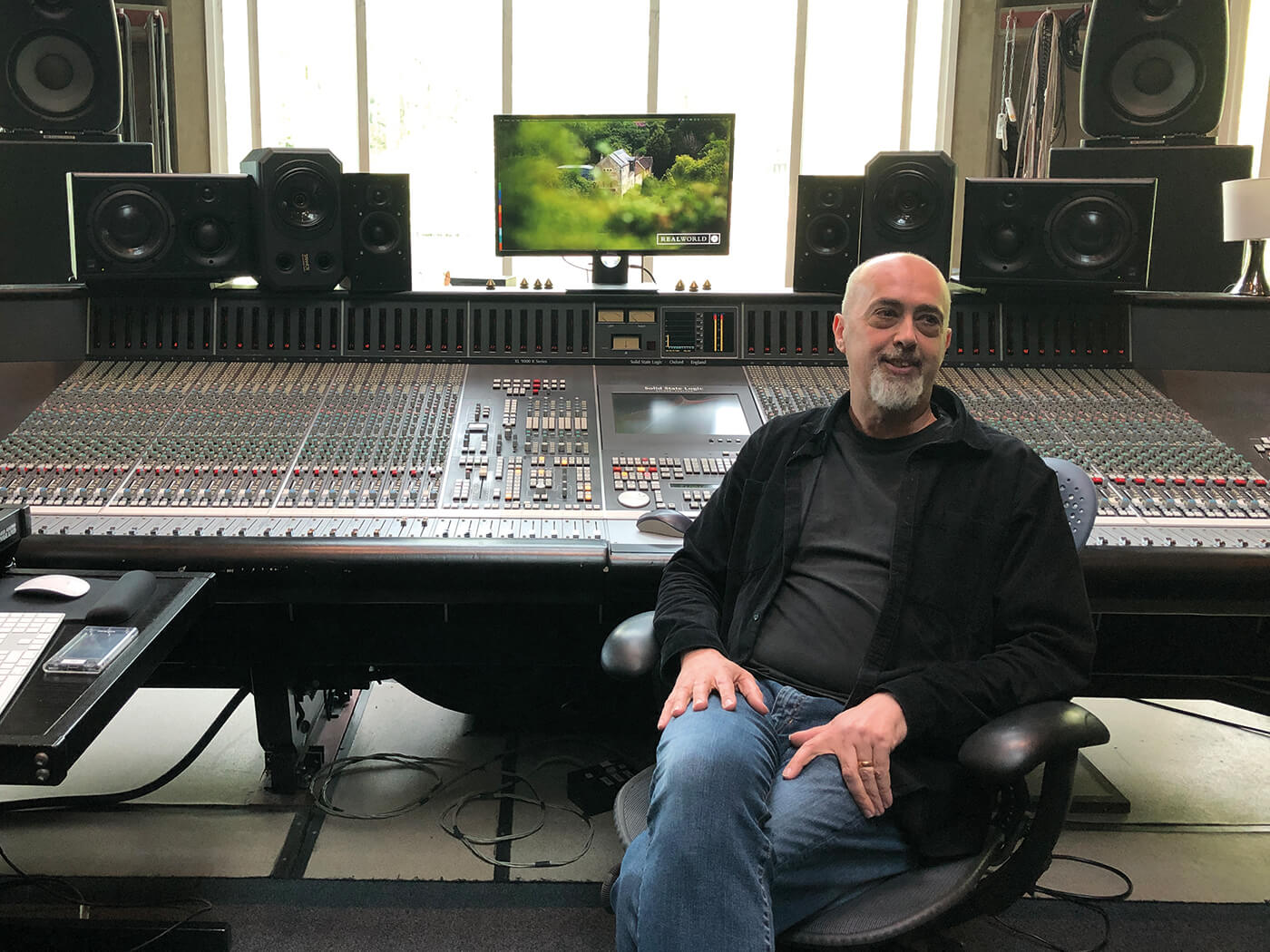
Making a name for himself initially as a remixer alongside Paul Oakenfold, Steve Osborne subsequently grew into one of the UK’s most in-demand producers. He has worked with an enormous roster of clients that includes Placebo, Suede, KT Tunstall, Doves and, crucially, Happy Mondays. Their dance-rock record Pills ’N’ Thrills And Bellyaches epitomised the ‘Madchester’ sound in 1990 and, as Steve reveals, was a remarkable – and memorable – recording experience.
Steve’s career was kickstarted by an early role as a ‘tea boy’ at the legendary Trident Studios. During his initial time there, he sought to make himself an indispensable font of knowledge regarding production equipment and was soon required to step in and help out with sessions. Today, Steve still espouses the value of making yourself a resourceful asset in the studio to the next generation of producers during his masterclasses at BIMM. He currently operates from Peter Gabriel’s beautiful, gear-packed studio Real World, close to Osborne’s home city of Bath – which is where we meet the seasoned producer…
What sparked your interest in music production?
Well, I think it was probably when I heard The Dark Side Of The Moon for the first time. It was at my sister’s 16th birthday. One of her friends put it on and I was just totally blown away. Before that, I’d only really heard the early Beatles records and a few more mainstream things. But my parents didn’t have an extensive collection. That was definitely the point where I noticed sound.
I was in a few bands when I was younger. I used to study the art of recording in magazines, however, I dropped out of university and spent a long time on the dole. I teamed up with a few mates eventually and we set up a little 8-track recording studio. We’d record local bands and borrowed the local university’s Portastudio.
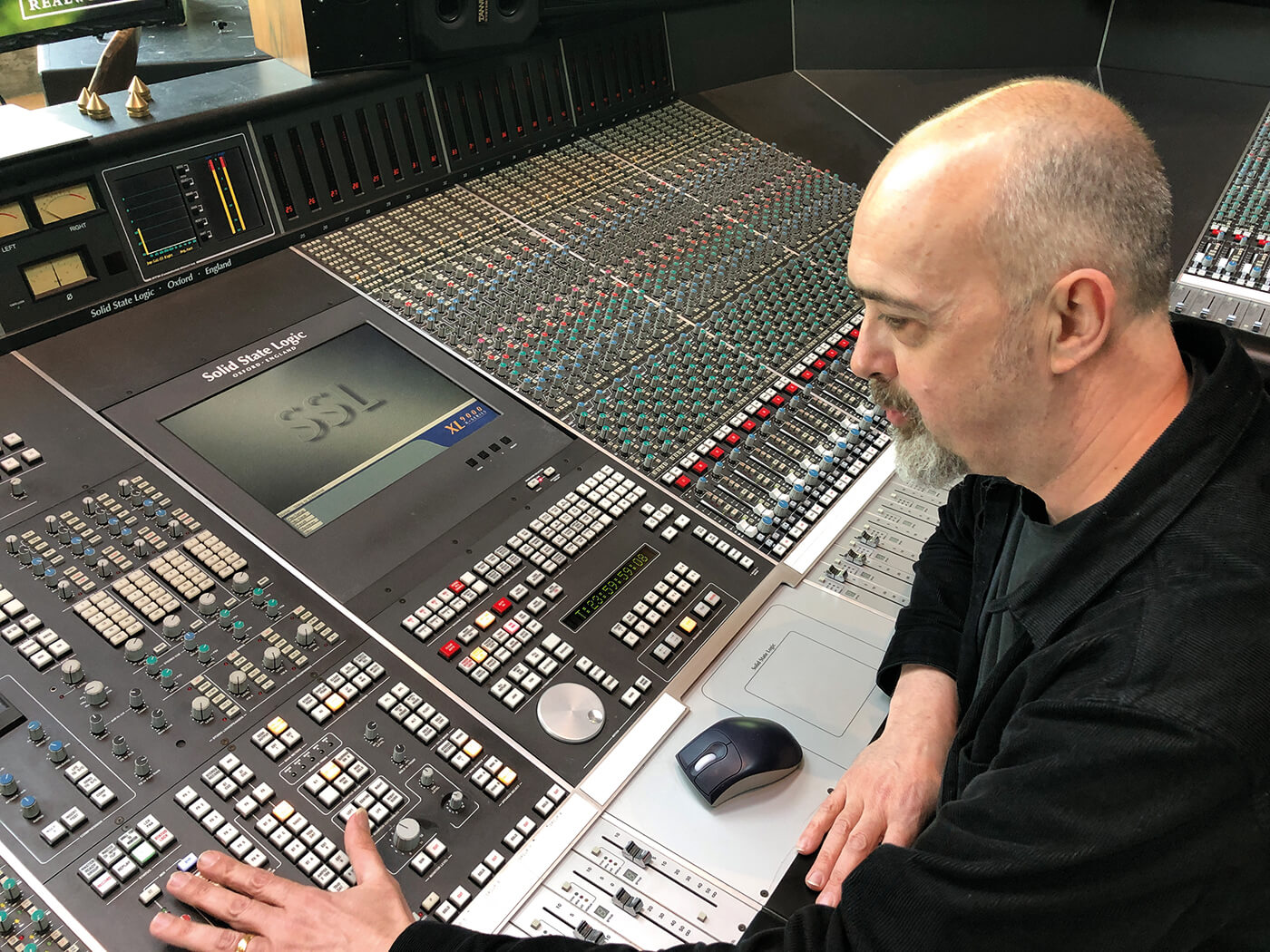
I taught myself recording and mixing skills during this time. Then eventually, I got a job as a tea boy in Trident Studios in London. Once you’ve got your foot in the door, it’s a question of taking advantage of the situation and proving your worth. I learned everything I could when I was there; I’d sometimes stay overnight at the studio and just play with bits and pieces that weren’t being used. After a month of working there, I knew a hell of a lot about the gear, so if a tape op was ill I could easily step in. They’d say: “Oh, we’ll get Steve” – it was my job to be that person. I soon began working as a tape-op and worked every day, seven days a week. I’d only get a day off if we’d done a 24-hour tape-op’ing session. For me though, it was absolute heaven!
So was it during your time at Trident or after that you met up with Paul Oakenfold?
Well, Trident Studios got sold and I left. I worked with a production team for about a year straight after and they were doing dance music-type stuff. It was quite clubby, but more on the pop side. I was their engineer.
I met Paul because he was starting on the whole house scene and wanted to find someone to work with. He was managed by someone who managed a friend of mine and he said that he should check me out. We did a trial run together and we got on pretty well. So shortly after, I left my job with the production team and started working with Paul full time.
It didn’t start out as Perfecto Records – we were just working on projects and it started to eventually make sense to set up a label for all our stuff.
So in those days, the tech you used to remix projects must have been quite different to what you’d use now?
For me, when I go in the studio I don’t plan to ‘do’ anything per se. You just go in and you look at what you’ve got to work with. You then get on with it. I think we’d finished Wrote For Luck – our first major-label project – and thought, well, we quite like it [Steve and Paul’s Wrote For Luck remix, re-titled W.F.L. (Think About The Future Mix), is often credited as being a significant milestone in the dance/rock (or ‘baggy’) sound of late- 80s Manchester bands – Ed].
I think it’s quite interesting to talk about that mix. We had a 24-track tape and no automatic click track. I had an SRC which is something that will take timecode off the tape and generate MIDI timecode, so we could lock a sequencer to the tape. On the first day, I spent about six hours just sorting that out. I had to take the kick drum from the tape and build a rudimentary click track. I’d calculate the rough tempo of the track, feed into sort of an 8th-note delay then bounce that directly onto the tape. I then fed that kick back into the SRC to generate the MIDI timecode. Then I’m in a situation where I can program straight to tape. That could take a full day of preparation.
In terms of the equipment we had to program, we hired in a Roland R-8 and I used my Juno-106. The lead line is the 106. All the synth stuff was done with the 106. The drums were just the R-8 and then Paul would spin in the samples live off his decks. I’d be mixing on an SSL so I could program the cuts, so I’d program the way the cuts would work on the decks. We’d have the decks plugged into the desk so Paul would live perform the scratching straight into the track. It took about three long days. I always worked like 14-hour days. I’d stay up till 2am in the morning. You want to get it done right and do good work.
Choice tools
Looking around your studio here at Real World, it’s packed with classic gear. How much does this kit get used?
My Moog needs to go to hospital – it’s got two oscillators working and is a bit rickety. This is actually signed by Bob Moog himself. Someone from Portishead interviewed Bob Moog at Moles Studio [in Bath] a few years ago. I was working there at the time and I was asked by the studio manager if I minded them coming in to use the studio for an interview. I said: “No problem, but could Bob sign my Moog?” And he did!
The biggest difference between hardware and software is that I could get a bass sound within 30 seconds on the Moog or the Juno. I can get sounds up really fast. If I plugged the Jupiter in and I’m building some sound, then I’m definitely going to touch the filter and get expressive with it. I’m going to do something reactive.
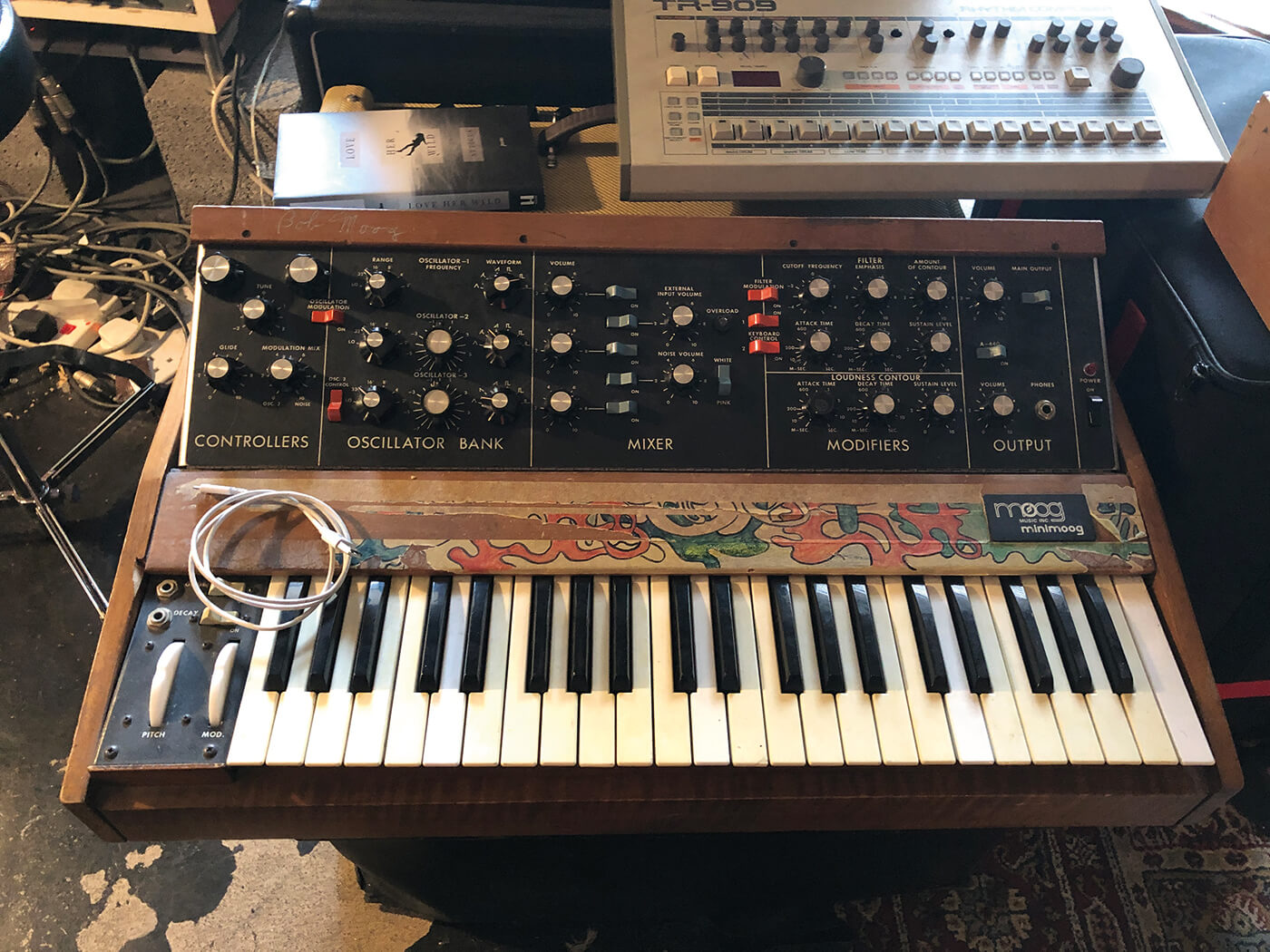
People can have overload with the amount of things you can do now. If you’re starting out and you’ve got Logic for example, then I don’t think you should be buying anything else. That’s got way more gear than we ever had back in million-pound studios. The amount of stuff in that program is astonishing. If you spent two years learning every single part of everything in there then you’re probably ready to add to it. But you’re probably going to think, ‘well, that’s probably not that great because it came with the software,’ but honestly, the stuff in there is phenomenal.
When did you first get established here at Real World Studios?
It was about six/seven years ago. It got to the point where budgets were becoming too low to book a studio . People were offering me workbut after studio costs there was nothing left to live on.
When me and Paul were remixing we did everything at Eden Studios and that would be around £850-£900 a day and we’d be there for a week doing remixes, which today just seems ridiculous.To be honest I’ve always preferred to go to different studios but having your own room now is a necessity…
What kit in here is essential to the way you produce?
I’ve had the UA Apollo since it first came out. It was an ideal solution. I use Cockos Reaper and I have Pro Tools on my laptop, too. If I’m tracking, I use Pro Tools, but if I’m mixing or overdubbing, I’ll use Reaper. I find it really fast to work on. I was looking for an interface and wanted to get more plug-ins, especially from UA, so the Apollo was perfect.
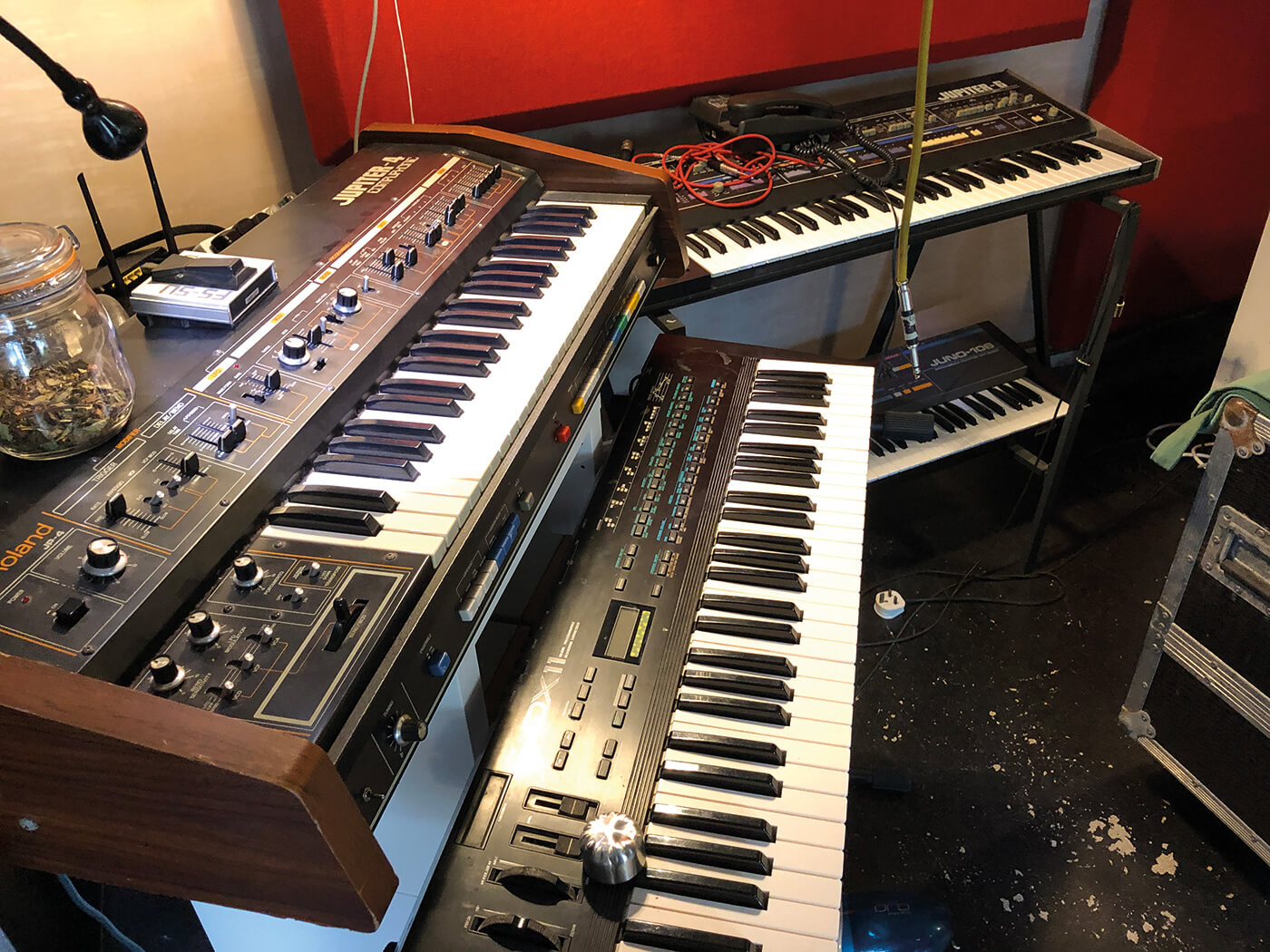
Reaper just does everything straight away. It takes the routing out of everything, so you don’t have to route through busses. It’s just a simple drag-and-drop process. The folder system is so simple. I can put things together and work really fast with it.
There’s certain UA plug-ins I use quite a lot. Soundtoys’ range is great, too. Sonnox plug-ins are very professional and help me out so frequently with different problems. They do what they say on the tin. I also love all the Brainworx stuff. I’ve just got their bx_Console SSL plug-in in a recent sale and that’s it now – I’m done! I started on SSL at Trident, so I’m back to where I started. It just sounds like an SSL. I know exactly what’s going on. You can switch between the different EQs. It’s got saturation and the randomiser thing that makes all the channels sound different. Now, if I’m mixing, I’ll put one of them on every channel.
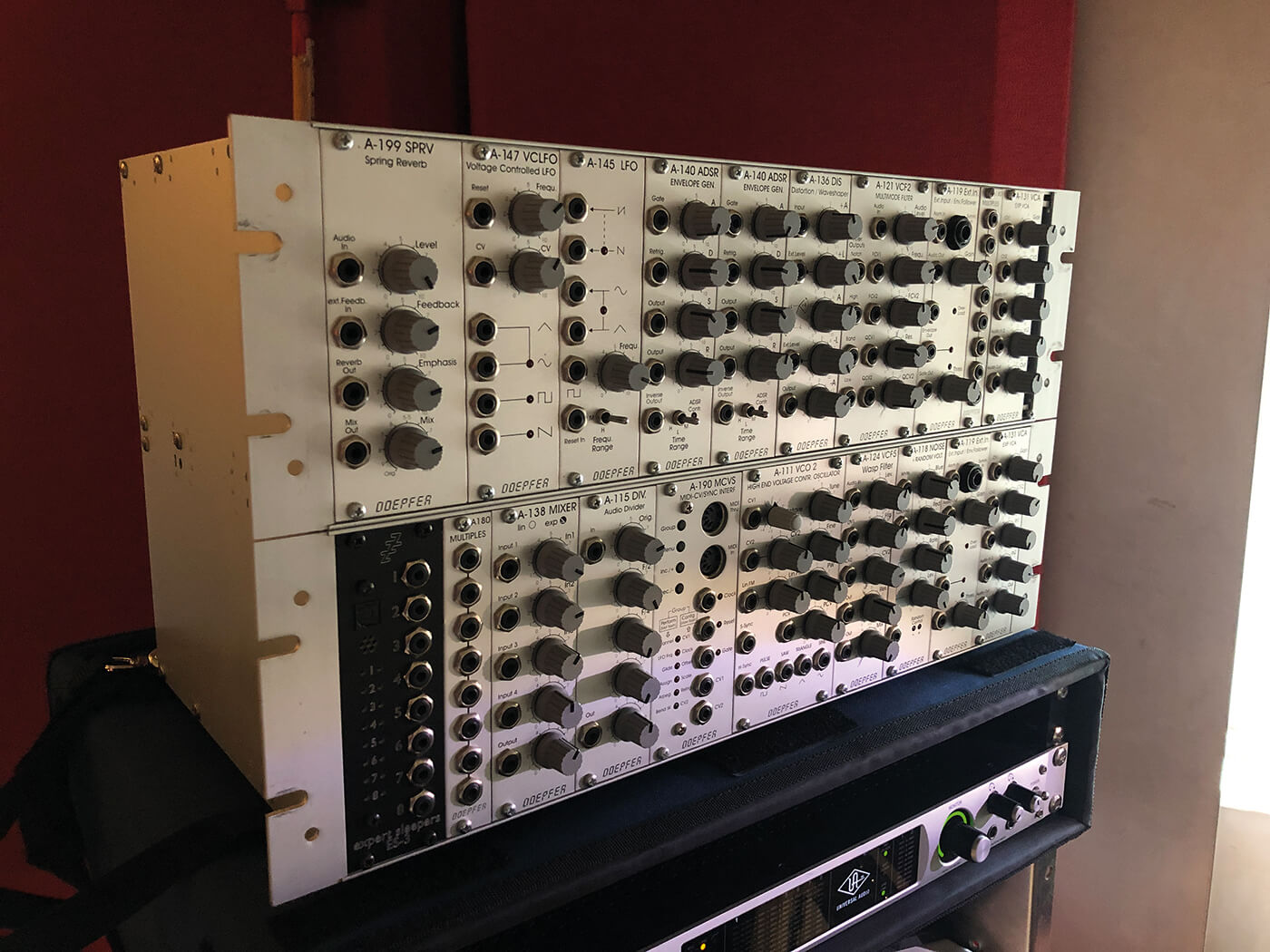
I bought the Doepfer Modular System back when I worked with New Order. Pete Davies, who was programming for us at that time, had one and I liked it. It’s got two additional inputs and VCAs. It’s kind of got two of everything, but only one filter. I use it to put sounds through to distort and mess sounds up. It’s a superb mono bass sound. The Moog can be a little overbearing on the bottom end, whereas the Doepfer is just tight.
Call the cops
Let’s talk a little bit about the recording of one of the most important records you produced, Happy Mondays’ Pills ’N’ Thrills And Bellyaches…
People always say to me: “Oh, that must have been mental and chaotic,” but really, it wasn’t. It was actually quite a disciplined session. They’d done a lot of work with Steve Lillywhite and Martin Hannett, who was obviously a genius, but from what I hear, he had a pretty unorthodox approach. So me and Paul Oakenfold were in Capitol in LA and had 12-hour days booked at the studio for six days a week. The band were quite happy to have some structure I think at that point. From my perspective, we were just getting things done.
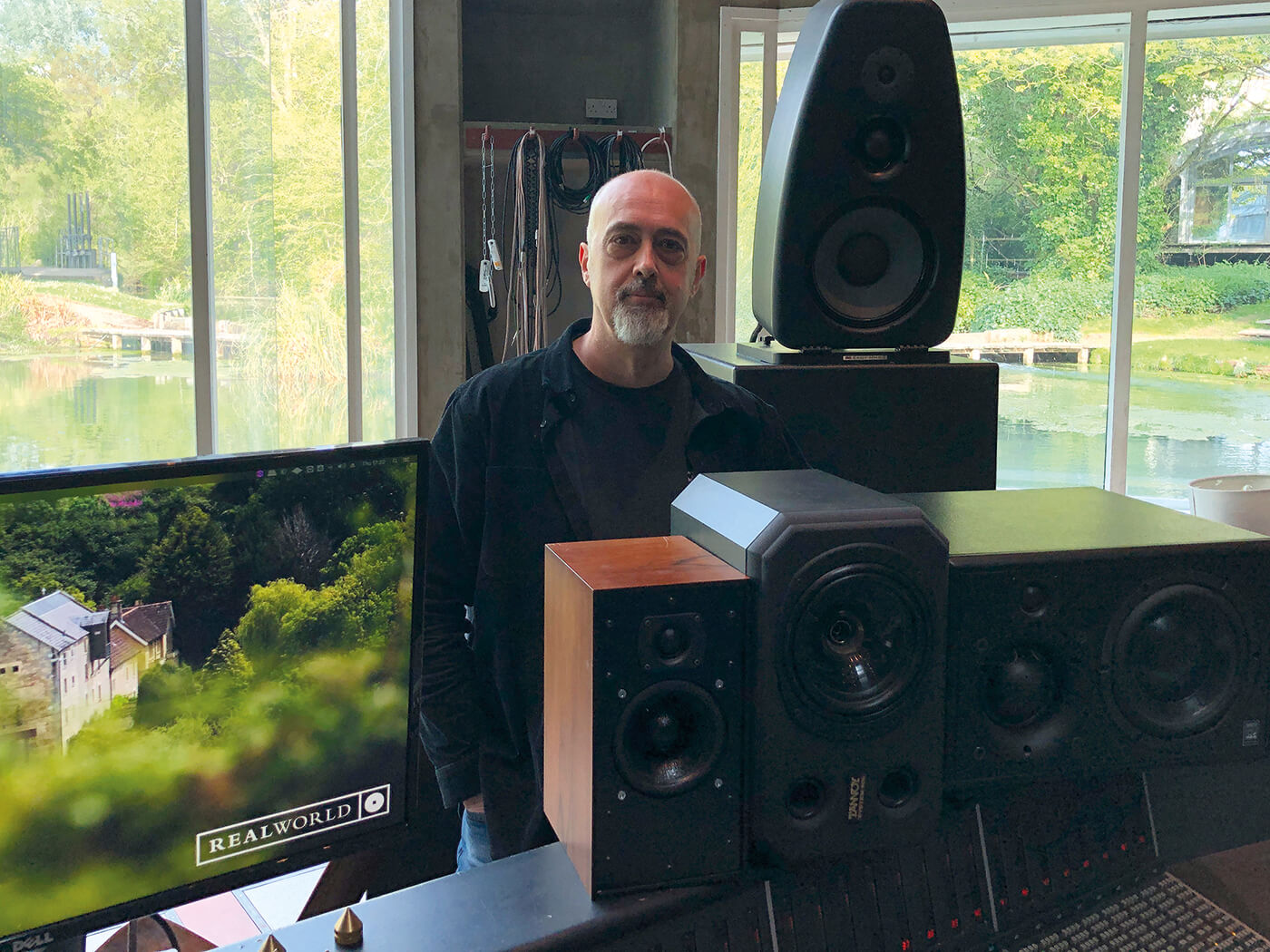
I’d tell Shaun to get in at 6am every day, then he’d turn up at 9 or 10am. I’d try and get some vocals done with him every day and we’d have a bit of banter. Sometimes, it was a case of just getting one or two lines every day and just gradually building the vocals up.
Shaun was always super supportive all the time, he said to the band: “Steve’s the producer, do what he says,” and we ended up with a great record, we did it in its entirety in about 10 weeks.
When you worked with Suede, Placebo, KT Tunstall, etc, did you find them or did they come to you?
I’ve been quite lucky, because my career started pretty fast after meeting Paul. I had management soon after that and they’ve always found me work. I’m not the sort of person that would say to someone: “You need to work with me.” I’ve been lucky that people have approached me and asked to work with me. An exception to that rule was when I produced Placebo’s Without You I’m Nothing – I pursued those guys after hearing their debut album. I loved the sound of that first record, but they really weren’t that keen.
KT Tunstall is an interesting one. When I produced her very first album Eye To The Telescope, there ended up being a lot of me on there, to be honest. That whole record was sort of me and KT. We had the musicians there for 10 days and we got loads of stuff down. We had a very small budget and KT stayed with me and my family at that point. We spent a long time mixing, just pulling bits apart and redoing it.
We did a bit of work on those tracks and then the label came down to hear what we’d done. It was complete silence. I played them what we’d done and you could hear a pin drop. Really bad vibes.
I think what’s interesting, comparing the business then and the business now, is that now I’d have just got sacked. What I explained to the label was just that what I had at that stage was not what I would have at the end. It’s part of a process to get to the end point.
When you’re working with a solo artist, I think it’s perhaps the hardest production you can do. You have to find their sound. If you’ve got a band, then you’ve got a better idea of how they sound and perform as a collection of musicians. They have a sound. So you have to record them and fix any minor problems. With a solo artist, you can make them sound like anything. But you’ve got to give them an identity to make it cut, though. You can’t find that in a week, or two weeks, or even four weeks! It’s going to take a period of time and a period of trust.
The sound for KT came from the way she strums a guitar. Every recording of KT is vocals/guitar at the same time. We never recorded vocals on their own. We built everything rhythmically around that framework.
Passing the torch
You’re tutoring at BIMM. How did working in music education start for you and do you intend to carry on with this strand of your career?
I did a few masterclasses for a few colleges and really enjoyed it. I especially enjoyed one I did in Dublin, at Windmill Lane Studios where I worked with U2. In the afternoon, I did an afternoon with the students and they each played me their project; I would then give a critique of it, offer some suggestions. I just really loved it. I really enjoyed the whole day.
I’ve always got an opinion. I can hear something straight away and tell you sonically or arrangement-wise what I think should be altered. It’s kind of fun to use that. There were a couple of them, though, that I heard and just said: ‘That sounds fucking great – no comment!”
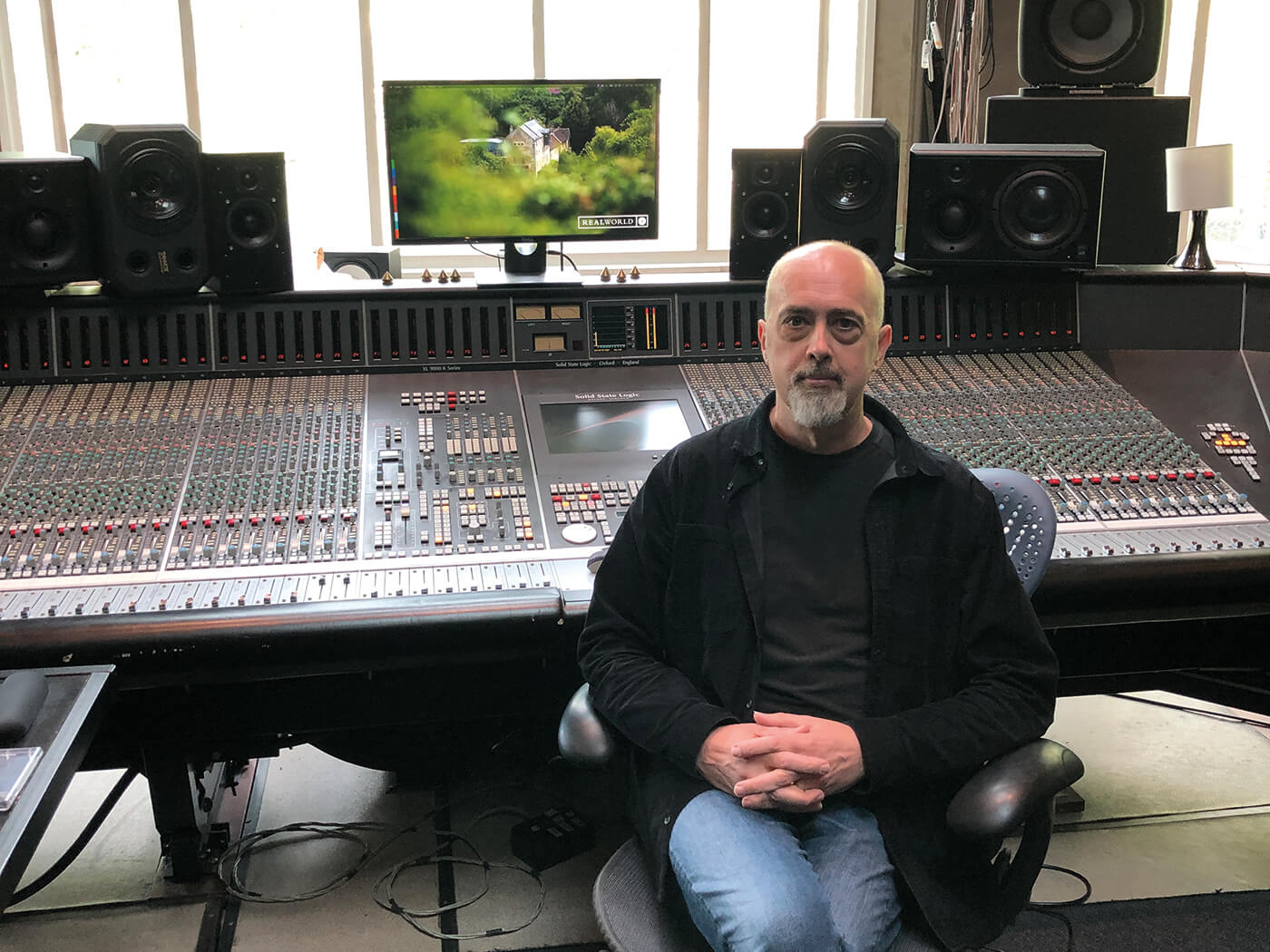
So following that the opportunity came up at BIMM’s new college that opened up in Birmingham. I had a chat with them and I’ve been teaching there this year and I’ll probably do that again next year. What’s been interesting about that is that I’ve had to sit down and think about my own process and just what I do. It’s been really interesting, analysing how I’ve done things over the years.
What’s your advice for this generation of producers?
If I was 18 now, I’d go to BIMM or somewhere like that to learn as much as I could. Within the first two weeks, I’d learn how to use every single piece of gear in the studio and I would book the studio every day. I’d record every single other student and anyone who wanted to record anything. I’d be driving the lecturers mental with questions and saying: “Can you give me some stems to mix?” That was kind of my approach back when I was at Trident, just learning everything I could.
You want to be the guy that people want to talk to about recording. Simple as. You have to make yourself a visible person. Make yourself known and seen to be talented. If you’re passionate about something then you should invest time into it.
For more of Steve, check out his website.